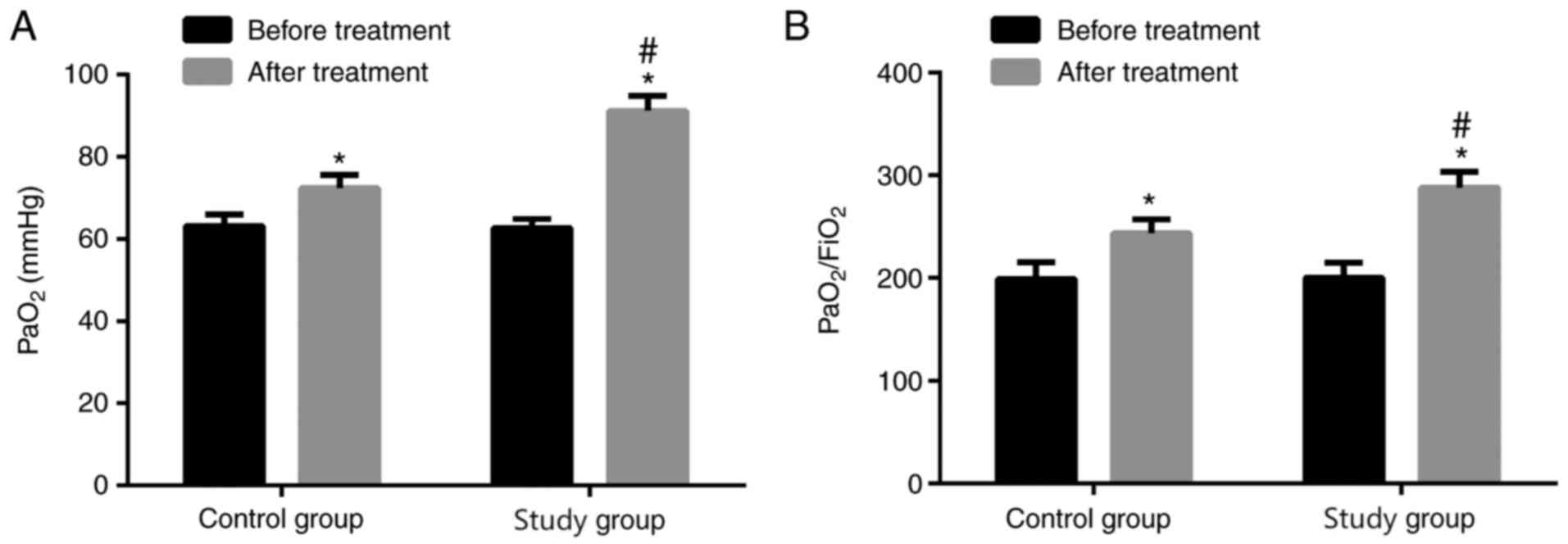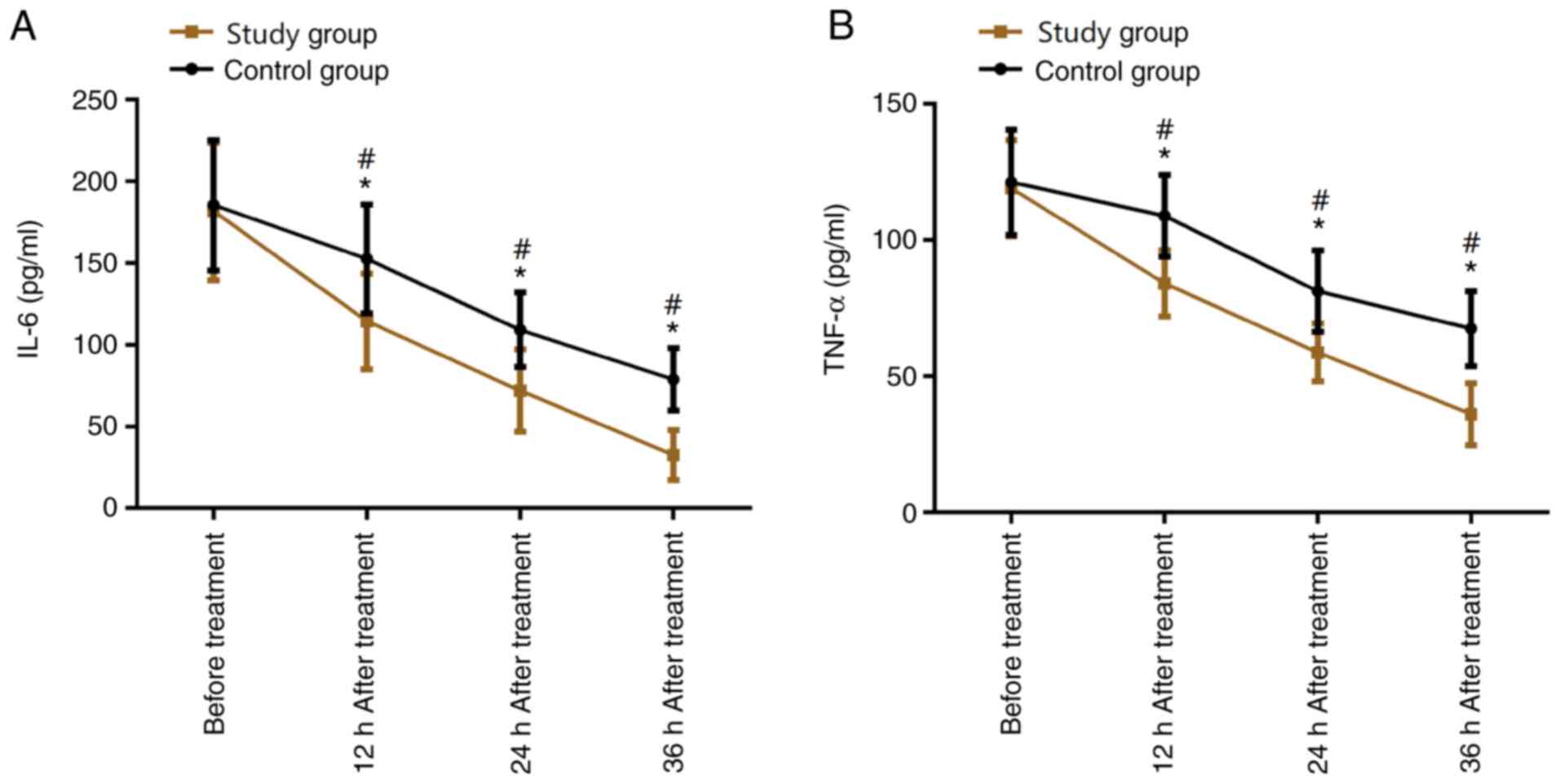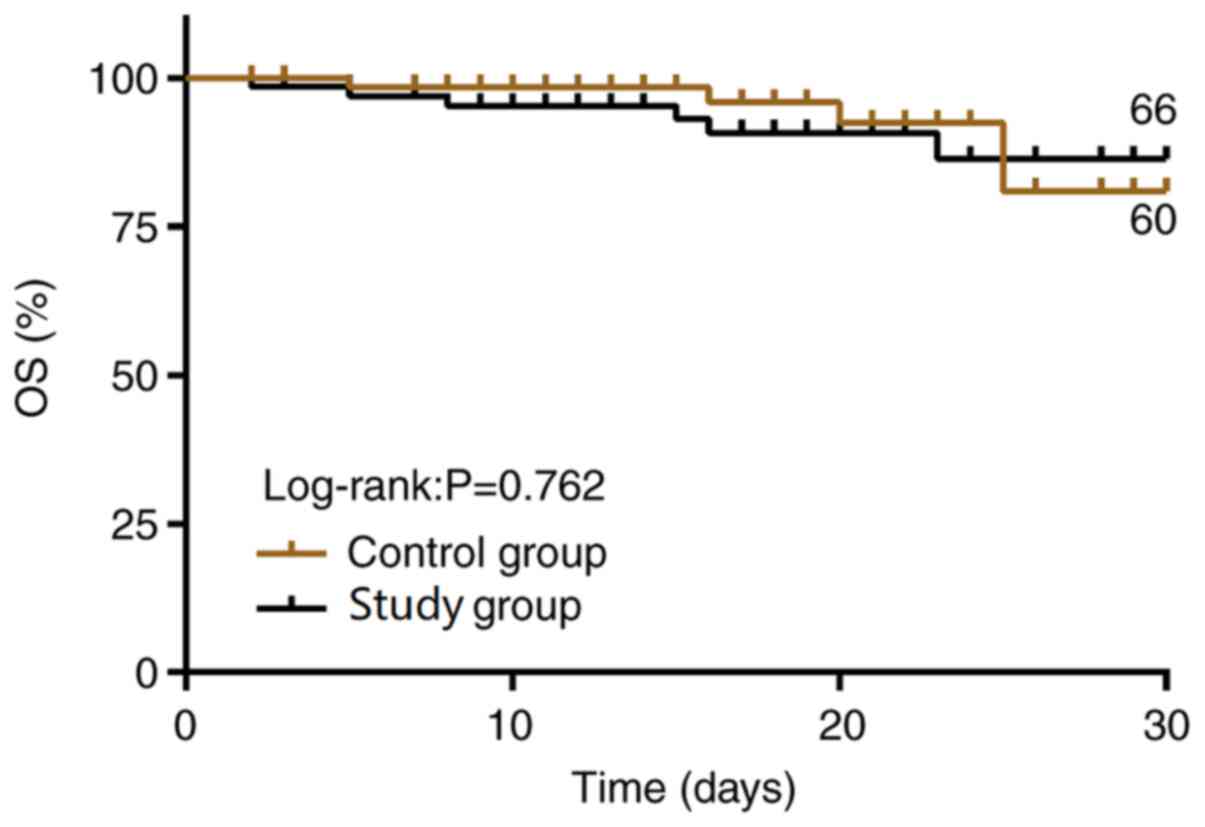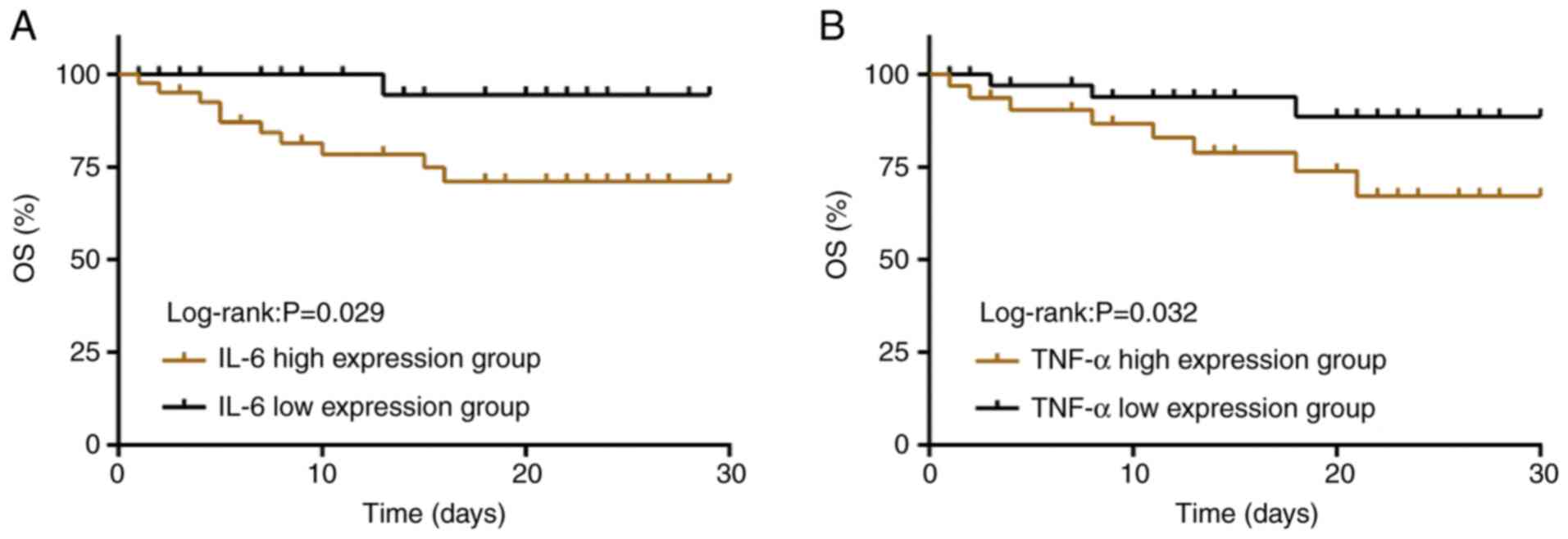|
1
|
Li Y, Wu R, Tian Y, Yu M, Tang Y, Cheng H
and Tian Z: RAGE/NF-κB signaling mediates lipopolysaccharide
induced acute lung injury in neonate rat model. Int J Clin Exp Med.
8:13371–13376. 2015.PubMed/NCBI
|
|
2
|
Jin Z, Chun Suen K and Ma D: Perioperative
‘remote’ acute lung injury: Recent update. J Biomed Res.
31:197–212. 2017.PubMed/NCBI View Article : Google Scholar
|
|
3
|
Rajasekaran S, Pattarayan D, Rajaguru P,
Sudhakar Gandhi PS and Thimmulappa RK: MicroRNA regulation of acute
lung injury and acute respiratory distress syndrome. J Cell
Physiol. 231:2097–2106. 2016.PubMed/NCBI View Article : Google Scholar
|
|
4
|
Gupta S, Sankar J, Lodha R and Kabra SK:
Comparison of prevalence and outcomes of pediatric acute
respiratory distress syndrome using Pediatric Acute Lung Injury
Consensus Conference criteria and Berlin definition. Front Pediatr.
6(93)2018.PubMed/NCBI View Article : Google Scholar
|
|
5
|
Perl M, Chung C-S, Perl U, Lomas-Neira J,
de Paepe M, Cioffi WG and Ayala A: Fas-induced pulmonary apoptosis
and inflammation during indirect acute lung injury. Am J Respir
Crit Care Med. 176:591–601. 2007.PubMed/NCBI View Article : Google Scholar
|
|
6
|
Perez EE, Orange JS, Bonilla F, Chinen J,
Chinn IK, Dorsey M, El-Gamal Y, Harville TO, Hossny E, Mazer B, et
al: Update on the use of immunoglobulin in human disease: A review
of evidence. J Allergy Clin Immunol. 139:S1–S46. 2017.PubMed/NCBI View Article : Google Scholar
|
|
7
|
Wang Y and Scott DE: Development of a
complement-mediated hemolysis assay for Immune globulin intravenous
products and characterization of lots associated with clinical
hemolysis. 2017.
|
|
8
|
Shulman ST: Intravenous immunoglobulin for
the treatment of Kawasaki disease. Pediatr Ann. 46:e25–e28.
2017.PubMed/NCBI View Article : Google Scholar
|
|
9
|
Tagami T, Matsui H, Fushimi K and Yasunaga
H: Intravenous immunoglobulin use in septic shock patients after
emergency laparotomy. J Infect. 71:158–166. 2015.PubMed/NCBI View Article : Google Scholar
|
|
10
|
Rayamajhi A, Nightingale S, Bhatta NK,
Singh R, Kneen R, Ledger E, Bista KP, Lewthwaite P, Mahaseth C,
Turtle L, et al: A preliminary randomized double blind
placebo-controlled trial of intravenous immunoglobulin for Japanese
encephalitis in Nepal. PLoS One. 10(e0122608)2015.PubMed/NCBI View Article : Google Scholar
|
|
11
|
Fakhari Z, Farsaei S and Sabzghabaee AM:
Predicting factors for the pattern of intravenous immunoglobulin
utilization in a Middle Eastern University Hospital. J Res Pharm
Pract. 7:188–194. 2018.PubMed/NCBI View Article : Google Scholar
|
|
12
|
Hartung HP, Mouthon L, Ahmed R, Jordan S,
Laupland KB and Jolles S: Clinical applications of intravenous
immunoglobulins (IVIg) - beyond immunodeficiencies and neurology.
Clin Exp Immunol. 158 (Suppl 1):23–33. 2009.PubMed/NCBI View Article : Google Scholar
|
|
13
|
Jing W, Chunhua M and Shumin W: Effects of
acteoside on lipopolysaccharide-induced inflammation in acute lung
injury via regulation of NF-κB pathway in vivo and in vitro.
Toxicol Appl Pharmacol. 285:128–135. 2015.PubMed/NCBI View Article : Google Scholar
|
|
14
|
Jiang W, Luo F, Lu Q, Liu J, Li P, Wang X,
Fu Y, Hao K, Yan T and Ding X: The protective effect of Trillin
LPS-induced acute lung injury by the regulations of inflammation
and oxidative state. Chem Biol Interact. 243:127–134.
2016.PubMed/NCBI View Article : Google Scholar
|
|
15
|
Mokra D and Kosutova P: Biomarkers in
acute lung injury. Respir Physiol Neurobiol. 209:52–58.
2015.PubMed/NCBI View Article : Google Scholar
|
|
16
|
Altirkawi K: Surfactant therapy: The
current practice and the future trends. Sudan J Paediatr. 13:11–22.
2013.PubMed/NCBI
|
|
17
|
Demirakça S, Dötsch J, Knothe C, Magsaam
J, Reiter HL, Bauer J and Kuehl PG: Inhaled nitric oxide in
neonatal and pediatric acute respiratory distress syndrome: Dose
response, prolonged inhalation, and weaning. Crit Care Med.
24:1913–1919. 1996.PubMed/NCBI View Article : Google Scholar
|
|
18
|
Lai D, Xia J, Wang J, Wei X, Qian J, Lou
Q, Ren X and Huang X: The effect of paraquat on voltage-dependent
anion channel and caspase-3, 8, 9 in the mitochondria of rat lung.
Zhonghua Lao Dong Wei Sheng Zhi Ye Bing Za Zhi. 33:363–365.
2015.PubMed/NCBI(In Chinese).
|
|
19
|
Zimmermann KK, Spassov SG, Strosing KM,
Ihle PM, Engelstaedter H, Hoetzel A and Faller S: Hydrogen sulfide
exerts anti-oxidative and anti-inflammatory effects in acute lung
injury. Inflammation. 41:249–259. 2018.PubMed/NCBI View Article : Google Scholar
|
|
20
|
Li SJ, Wang XJ, Hu JB, Kang XQ, Chen L, Xu
XL, Ying XY, Jiang SP and Du YZ: Targeting delivery of simvastatin
using ICAM-1 antibody-conjugated nanostructured lipid carriers for
acute lung injury therapy. Drug Deliv. 24:402–413. 2017.PubMed/NCBI View Article : Google Scholar
|
|
21
|
Becker DE: Basic and clinical pharmacology
of glucocorticosteroids. Anesth Prog. 60:25–31; quiz 32.
2013.PubMed/NCBI View Article : Google Scholar
|
|
22
|
Navegantes KC, de Souza Gomes R, Pereira
PA, Czaikoski PG, Azevedo CH and Monteiro MC: Immune modulation of
some autoimmune diseases: The critical role of macrophages and
neutrophils in the innate and adaptive immunity. J Transl Med.
15(36)2017.PubMed/NCBI View Article : Google Scholar
|
|
23
|
Gadian J, Kirk E, Holliday K, Lim M and
Absoud M: Systematic review of immunoglobulin use in paediatric
neurological and neurodevelopmental disorders. Dev Med Child
Neurol. 59:136–144. 2017.PubMed/NCBI View Article : Google Scholar
|
|
24
|
Ma XY, Li Z, Wang XJ, Ye JJ, Ma YP and Li
Y: Clinical efficacy of different doses of gamma globulin combined
with glucocorticoid in treatment of moderate/severe acute
Guillain-Barré syndrome in children: A comparative analysis.
Zhongguo Dang Dai Er Ke Za Zhi. 18:1286–1290. 2016.PubMed/NCBI View Article : Google Scholar : (In Chinese).
|
|
25
|
Viasus D, Garcia-Vidal C, Simonetti AF,
Dorca J, Llopis F, Mestre M, Morandeira-Rego F and Carratalà J: The
effect of simvastatin on inflammatory cytokines in
community-acquired pneumonia: A randomised, double-blind,
placebo-controlled trial. BMJ Open. 5(e006251)2015.PubMed/NCBI View Article : Google Scholar
|
|
26
|
Fang Y, Xu P, Gu C, Wang Y, Fu XJ, Yu WR
and Yao M: Ulinastatin improves pulmonary function in severe
burn-induced acute lung injury by attenuating inflammatory
response. J Trauma. 71:1297–1304. 2011.PubMed/NCBI View Article : Google Scholar
|
|
27
|
Gao M, Xie B, Gu C, Li H, Zhang F and Yu
Y: Targeting the proinflammatory cytokine tumor necrosis factor-α
to alleviate cardiopulmonary bypass-induced lung injury (review).
Mol Med Rep. 11:2373–2378. 2015.PubMed/NCBI View Article : Google Scholar
|
|
28
|
Massey VL, Poole LG, Siow DL, Torres E,
Warner NL, Schmidt RH, Ritzenthaler JD, Roman J and Arteel GE:
Chronic alcohol exposure enhances lipopolysaccharide-induced lung
injury in mice: Potential role of systemic tumor necrosis
factor-alpha. Alcohol Clin Exp Res. 39:1978–1988. 2015.PubMed/NCBI View Article : Google Scholar
|
|
29
|
Kang S, Tanaka T and Kishimoto T:
Therapeutic uses of anti-interleukin-6 receptor antibody. Int
Immunol. 27:21–29. 2015.PubMed/NCBI View Article : Google Scholar
|
|
30
|
Wang L, Chen Q, Shi C, Lv H, Xu X and Yu
L: Changes of serum TNF-α, IL-5 and IgE levels in the patients of
mycoplasma pneumonia infection with or without bronchial asthma.
Int J Clin Exp Med. 8:3901–3906. 2015.PubMed/NCBI
|
|
31
|
Han CL and Zhao SL: Intravenous
immunoglobulin gamma (IVIG) versus IVIG plus infliximab in young
children with Kawasaki disease. Med Sci Monit. 24:7264–7270.
2018.PubMed/NCBI View Article : Google Scholar
|
|
32
|
Chu L, Zhu F, Zhou W, Du Z, Li J, Wang X,
Wang L and Liu A: Baicalein attenuates acute lung injury induced by
intestinal ischemia/reperfusion via inhibition of nuclear factor-κB
pathway in mice. Zhonghua Wei Zhong Bing Ji Jiu Yi Xue. 29:228–232.
2017.PubMed/NCBI View Article : Google Scholar : (In Chinese).
|
|
33
|
Wang Y, Gao L, Yang Z, Chen F and Zhang Y:
Effects of probiotics on ghrelin and lungs in children with acute
lung injury: A double-blind randomized, controlled trial. Pediatr
Pulmonol. 53:197–203. 2018.PubMed/NCBI View Article : Google Scholar
|
|
34
|
Galli SJ, Tsai M and Piliponsky AM: The
development of allergic inflammation. Nature. 454:445–454.
2008.PubMed/NCBI View Article : Google Scholar
|
|
35
|
Deshmane SL, Kremlev S, Amini S and Sawaya
BE: Monocyte chemoattractant protein-1 (MCP-1): An overview. J
Interferon Cytokine Res. 29:313–326. 2009.PubMed/NCBI View Article : Google Scholar
|


















